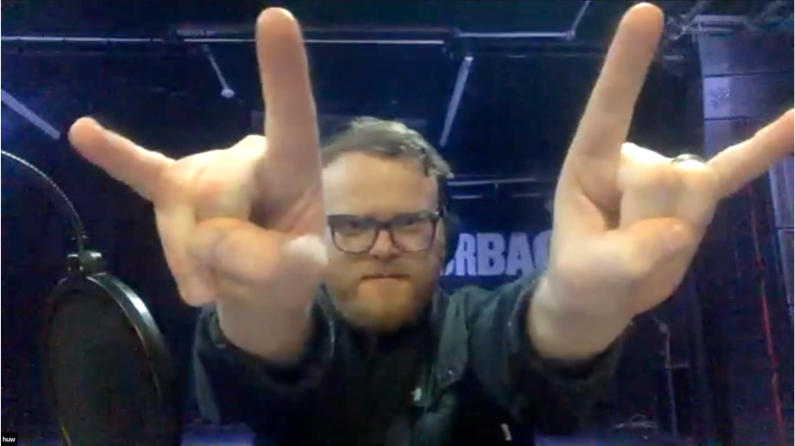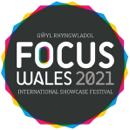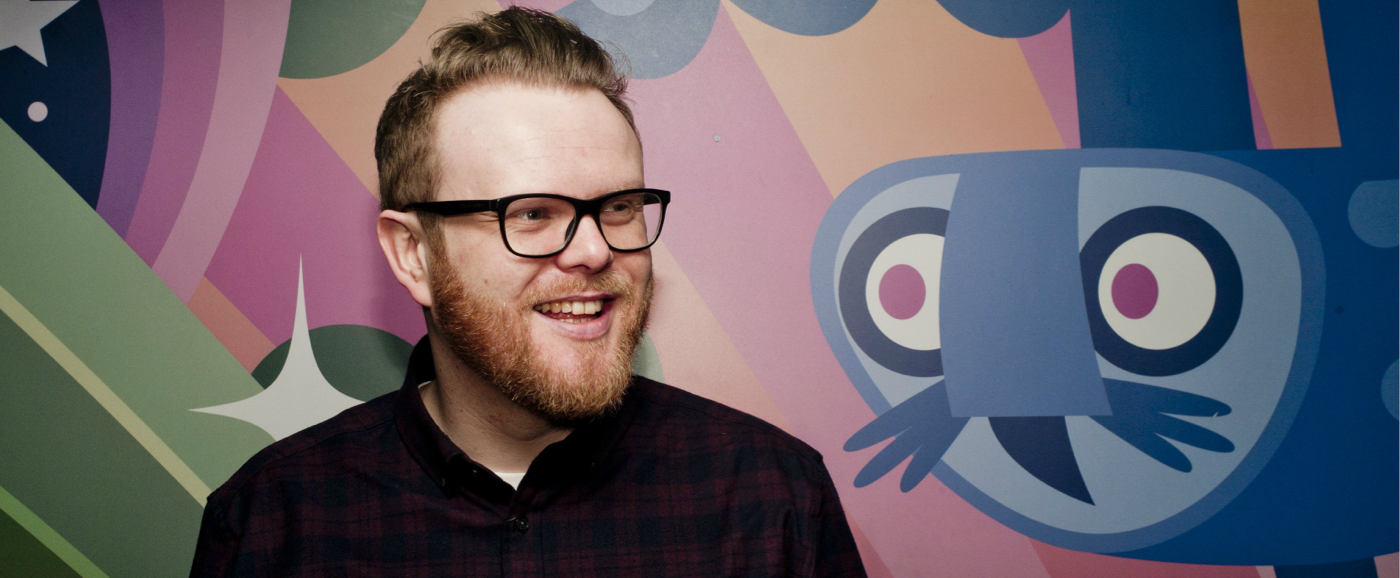A Conversation About Music Discovery
#HowWeListen Live: In Conversation with Huw Stephens was held virtually on April 27, 2021 and presented in partnership with FOCUS Wales, which is an annual showcase festival occurring in Wrexham, Wales. The festival features over 250 bands on 20 stages over three days. Mark your calendar for October 7-9, 2021 for this year’s event! Our venue was Clwb Ifor Bach, a famed live music venue in Cardiff, which can be credited with some of the earliest performances of artists like Coldplay and the Killers.
The following transcript has been edited for length and clarity.
Part II
In part II Marc and Huw talk about how musicians need to develop a supportive community, and how singing in Welsh can work for you. Then Huw takes a few audience questions.
Miss part I? Read it here.
Marc Brown: How do you decide that there’s something to that band? What is that journey, is it about someone important coming to a band’s gig?
Huw Stephens: It’s very hard to put your finger on how people make it in the music business because, as you mentioned earlier on, there’s no straight line. And it’s about the art of the artists. Do they love making the music that they love? That’s got to be the main priority. I think people can hear it if they don’t. I suppose when I listened to music, I listened to things that sound comfortable, and things that sound comfortable in their own skin. So regardless of genre, does it sound confident? And I don’t mean swaggering confidence. I mean, just confident in its own skin.
In terms of radio play, people ask what artists are you most proud of playing early on that have gone on to big things? There are loads but radio play, for me, is just part of that jigsaw. People would sometimes get one play on a radio show on a radio station and expect things to kick off. Often they wouldn’t. You’ve got to be part of the community. If nobody’s coming to your gigs locally, why would you expect people to come to your gigs in other parts of the country? I think it has to start local. You have to have your champions and your supporters locally for things to blossom elsewhere.
Marc Brown: I think that’s interesting because we did a #HowWeListen panel in Canada with BreakOut West with Cartel Madras, these two sisters who are rappers from Calgary, Canada, and they really talked about community. Can you explain what community means to you?
Huw Stephens: I guess what I mean by community is that it doesn’t have to be local to you either. They can be like-minded music fans who run a similar club night or venue night in another part of the world. But if they like what you do and you like what they do, then that’s your community. I suppose that’s what I mean. But I also do mean local. I do mean working with your local venues, your local radios, your local shops, and your local creative scene. There’s unity and strength there as well. So I think whilst it’s easier to make music, it is still hard to get noticed and to make an impact. But if you can, start things local… It’s difficult to pin down. That’s where it begins, I think.
Marc Brown: It’s something you mentioned that you look for or notice when you hear new music. Do you see that sense of community as being a part of it that you like? For example, you keep hearing about a certain band you’ve never seen from certain people, is that what you mean that people exchange information by word of mouth?
Huw Stephens: If something’s amazing, you’ll hear about it. I do believe locally and in your community, if something stands out, if something’s incredible, then people want to share it. People want you to come to the gig and people want to put gigs on. For example, a band like Boy Azooga a few years back. They’d been in various bands, they’d been session musicians, and then everybody was talking suddenly about Davey and Boy Azooga being signed to Heavenly Records. Then playing every festival and playing every gig in Wales because they were fantastic.
And it was that step up on the side of the venue that we’re in now where there is a massive mural of Gwenno, a Cardiff based artist who sings in Welsh and Cornish. She was brought up speaking both languages in Cardiff. She self-released the record through Pesky Records, and then Heavenly Records picked up on it, and have taken her around the world.
“I do believe locally and in your community, if something stands out, if something’s incredible, then people want to share it. “
Marc Brown: She was previously in a band before, right?
Huw Stephens: Yeah, back in the day she was in the Pipettes. She started making this kind of dystopian sci-fi influenced music in the Welsh language, who would have thunk that that would then end up on Jools Holland and that Gwenno would tour with Manic Street Preachers or Ben Howard and play North America and all these incredible showcases around the world. But of course, she was confident and she had impeccable taste, and she knew what she was doing. She had a vision for the record and how it sounded. She’s an incredible performer. And so it worked.
And that’s, that’s interesting, as well, because I speak Welsh and English, and do two shows in the Welsh language on the BBC once every week as well. When you see a band like Super Furry Animals record an album (called Mwng) in Welsh which reaches the Top 20 on the album charts proves that music has no borders. It proves that people are open-minded and that people do like quality music, regardless of the language that it’s sung in.
Marc Brown: Do you feel artists feel pressure to not sing in Welsh? Or maybe the reverse?
Huw Stephens: Thankfully, I don’t think there is pressure there now. Either way, I think it’s purely a personal choice for the artists. What I have found is that if you can sing in a language, then you tend to want to do it. If you can’t speak Welsh, then you’re not going to want to, and that’s fair enough. I think a lot of artists feel ownership over the Welsh language music scene. They feel that they’re part of it and they want to contribute and creatively express themselves in a language that they can speak. So I think the only pressure is from themselves.
Marc Brown: When was the last time there was a Welsh band on the playlist and Radio One?
Huw Stephens: I think High Contrast might have been the last Welsh artist, a drum and bass DJ based outside Cardiff and was on Hospital Records for a long time. London still is the centre of the UK music industry and I think things are easier there. If you’re an artist who wants to play a more major label game, I think it’s definitely the place to be. At the same time, I think creativity and talent are everywhere. I’ve always been an advocate of not moving to London. I’ve always been a fan of people doing things locally. I’ve heard more artists in Wales collaborating over the past year than ever before because they weren’t afraid to DM somebody and say, do you want to sing on my beat? And that’s a fantastic thing.
I think people are always scared of knowing who’s in charge of this? Who are the gatekeepers? Who do I contact to make all of my dreams come true? Actually, you just reach out and talk to people. There’s always somebody at the end of a phone, or the end of an email. They will either ignore you and never answer your email or answer your email to say, “actually, I liked your music.” If they don’t answer, they probably don’t like it. And you have to crack on with it then, don’t you?
Marc Brown: You mentioned the gatekeeper thing. And you did mention the email thing. I’m always telling people that they should go ahead…
Audience Question: How will we pitch music to you? How does it work being in your position?
Huw Stephens: If you want to pitch to me, it’s probably best to send a DM on Instagram or Twitter at the moment.
Audience Question: I’ve just started presenting on my University’s radio every week. What are some tips you could give me for making an engaging and good radio show?
Huw Stephens: I would say rip up the rulebook. Listen to loads of other radio stations. Take the best ideas from other DJs, tweak them, and practice them until you hear your own voice. That would be my advice. And have fun with it. Because fun is contagious. It sounds cheesy but it is.
Audience Question: What about social stats and Spotify plays? Do people say this records great, they’ve got X amount of Twitter followers, do you think that means anything?
Huw Stephens: No, it doesn’t for me personally but when I present radio shows, they tend to be specialist radio shows and I have the luxury of playing them. When you move on to a playlist at a station, I think those things might matter. Actually, I think people might say that they don’t but I think they probably do.
Having said that, I think everybody in the music industry likes to think of themselves as a little bit different from everybody else in the business. I think people do like trusting their own ears and people do like taking a gamble. People like finding things that other people haven’t heard. Magazines like it. Radio shows love it. So I wouldn’t worry about stats. Unless you love Instagramming, if you love tweeting, and if you love sharing your life, then obviously crack on. But if it’s not comfortable, then you really shouldn’t worry about it.
Audience Question: Now we haven’t talked too much about pluggers. Does working with a radio or press plugger help get a band played?
Huw Stephens: It does. The good ones are great. And the bad ones will take your money and promise you the world. So it’s about trust, isn’t it? Does it feel right to give somebody money to work on your thing? If it doesn’t, then don’t do it.
A lot of good ones will do things because they love it and will want to do stuff for free at the beginning to help out. A lot will just want to cheque then will tell you that they will get played on these stations and sent to these people. But a lot of this work can be done by the artists themselves if they do a little bit of homework in terms of listening to shows and asking themselves if the music is relevant. So it’s complex. There are some great press and radio people who will do a really good job. But I think normally you can tell if they are into it or not.
Marc Brown: But is there anything that you need to be watching out for? I know that a lot of artists struggle with this, they’re never sure what they should do?
Huw Stephens: It’s a tricky one because DJs are just humans at the end of the day and they want to play stuff that they like. I know that there are some DJs on 6 Music who love handwritten notes. When you think about something like Steve Lamarq going to see Idles playing in Bristol and bumping into them in a pub. And, you know, just getting on and then becoming his favourite band then Idles becoming one of the biggest bands in the UK. You know, that happens on a trust and friendship basis. I know it’s hard to make those magic moments happen. But you can’t make those magic moments happen because they’re just magic moments.
Marc Brown: I think that says a lot that it’s exactly how I feel for sure.
Audience Question: Do you have any special considerations when programming international artists compared to UK based artists?
Huw Stephens: It’s always exciting when an international artist sends you something to play on the radio because it’s the unknown, isn’t it? It’s different. I think in making music that there’s an audience out there for everybody. If you make music that’s super, hyper-local, or traditional to your part of the world, then there will be an audience for that at some point, because we’ve never heard it before. I think that’s true for a lot of Welsh artists as well.
You know, a lot of the world hasn’t heard the Welsh language. 9Bach, for example, want to sing in Welsh and take that music elsewhere. People are interested in our history and our culture. In the same way, I’m interested in other people’s history and culture. That could be a punk band from LA or rap music from Canada. There is a different sound to it. It’s back to that confidence thing. It’s being confident and making music that you really want to make and love to make. People understand and can hear the quality in it straight away.
Marc Brown: OK. Thanks so much, Huw. Thanks to Clwb Ifor Bach and FOCUS Wales.
Huw Stephens: It was brilliant. Have a good night and keep the faith.

In partnership with:






